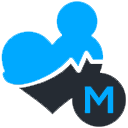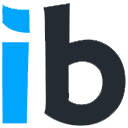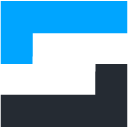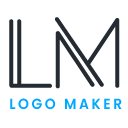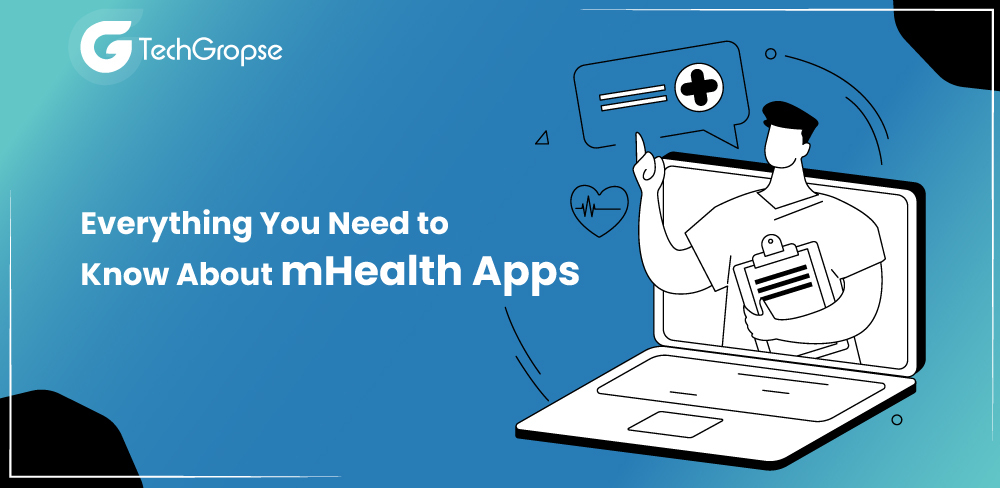It is true that smartphones have become a necessity in the fast-tech world. In today’s technology world, people use phones for everything from ordering clothes to booking movie tickets, paying for food, and accessing different healthcare services. As a result, the significant use of mobile apps across the healthcare industry. Henceforth, it is necessary to invest in mHealth apps to serve the best.
Over the years, mobile healthcare applications have significantly raised the standards of healthcare services. The market for mHealth apps is evolving excellently, with comprehensive options available for patients and medical experts. A report shows that over 10,000 mHealth apps are available on the Google Play Store.
These numbers indicate the rising popularity of next-generation meditect mHealth app trends and technologies and that medical users prefer and love mHealth apps. If you also want to invest in mHealth app development, you have to know everything about mHealth apps. In this post, we will share everything you need to know to build mHealth app.
Table of Contents
Types of mHealth Apps
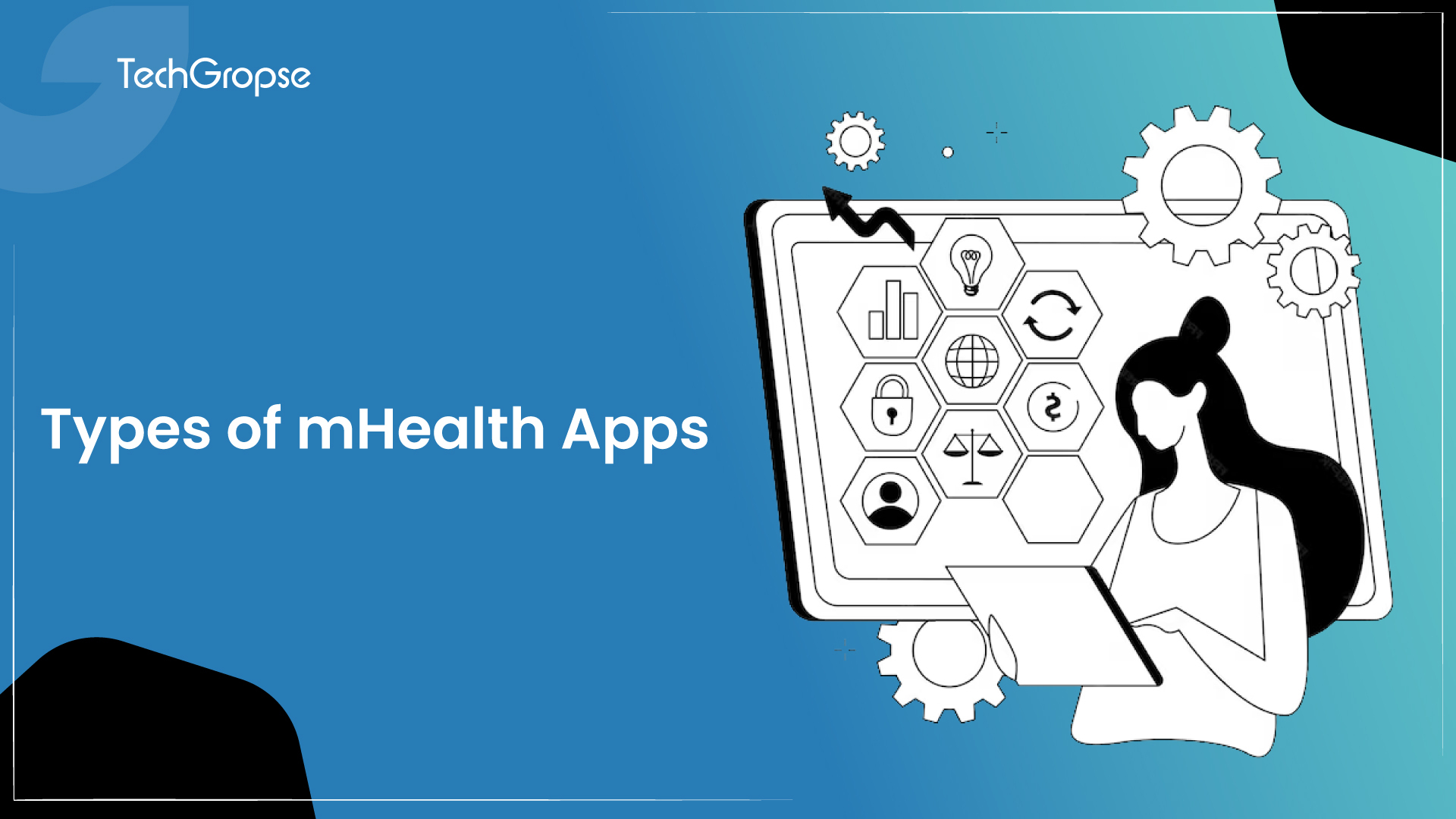
mHealth apps come in many different forms. If you are looking for a mHealth app development company to build your own app, several different types of popular apps can be considered healthcare mobile apps.
You might be surprised by some of the different mobile app types included in this post. In order to develop successful mHealth apps, you can provide healthcare services without directly providing healthcare services. Below, we list out some types of mHealth apps:
1. Clinical and Diagnostic Apps
These types of applications assist healthcare providers and physicians in collecting health data, analyze and then share it. These apps allow practitioners to view lab results, check electronic health records, or even perform digital imaging. Such applications assist patients and doctors to check the symptoms and diagnose the illness.
2. Mental health apps
For instance, Headspace is one of the best examples of mHealth apps. It is a meditation app designed to help you relax and live more mindfully. The app offers meditations for beginners as well as experienced users to combat stress and anxiety.
It means you can also build such an app; it is good to search for a leading healthcare app development company that will help you in building a functional and easy-to-use application as per your requirements.
3. Remote Monitoring Apps
Remote monitoring applications allow patients to get virtual care from their physicians while staying at home. Practitioners can take care of their patients by keeping a check on their heart rate, blood pressure, oxygen level and other healthcare problems without the requirement for regular visits.
In the short term, you can also try this type of app by seeking the help of a healthcare app development company that will help you in transforming your ideas into reality.
4. Reminder Apps
This is a basic kind of app that can remind patients of appointments or when to take medications. Although sometimes these apps come as a part of a larger app, they are always available independently. For instance, RevSpring Patient Connect enables users to download, view details of, and confirm appointments they have with healthcare service providers.
As a result, it’s a good idea to build such an application. However, it is necessary to keep an eye on every aspect. If you need to learn features and technologies, you have to search for a team of professionals with good experience in healthcare app development.
5. Text and Video Communication Apps
Fueled by the pandemic, patients have realized the benefits of virtual video consults and text messaging options that connect them to their caregivers. These applications help in better communication and foster better patient care.
Therefore, building this kind of application is a good idea to make money. But when it comes to investing in this type of mHealth apps, it is necessary to seek the help of professionals who are well-versed in building a functional app.
6. Prescription App
Prescription apps allow physicians to prescribe the right medicines for patients and set dosages in order to avoid side effects or cancel prescriptions at any time. Thus, you can also invest in such types of applications to ensure the success of your project.
Benefits of mHealth Apps for Helathcare Professionals and Patients
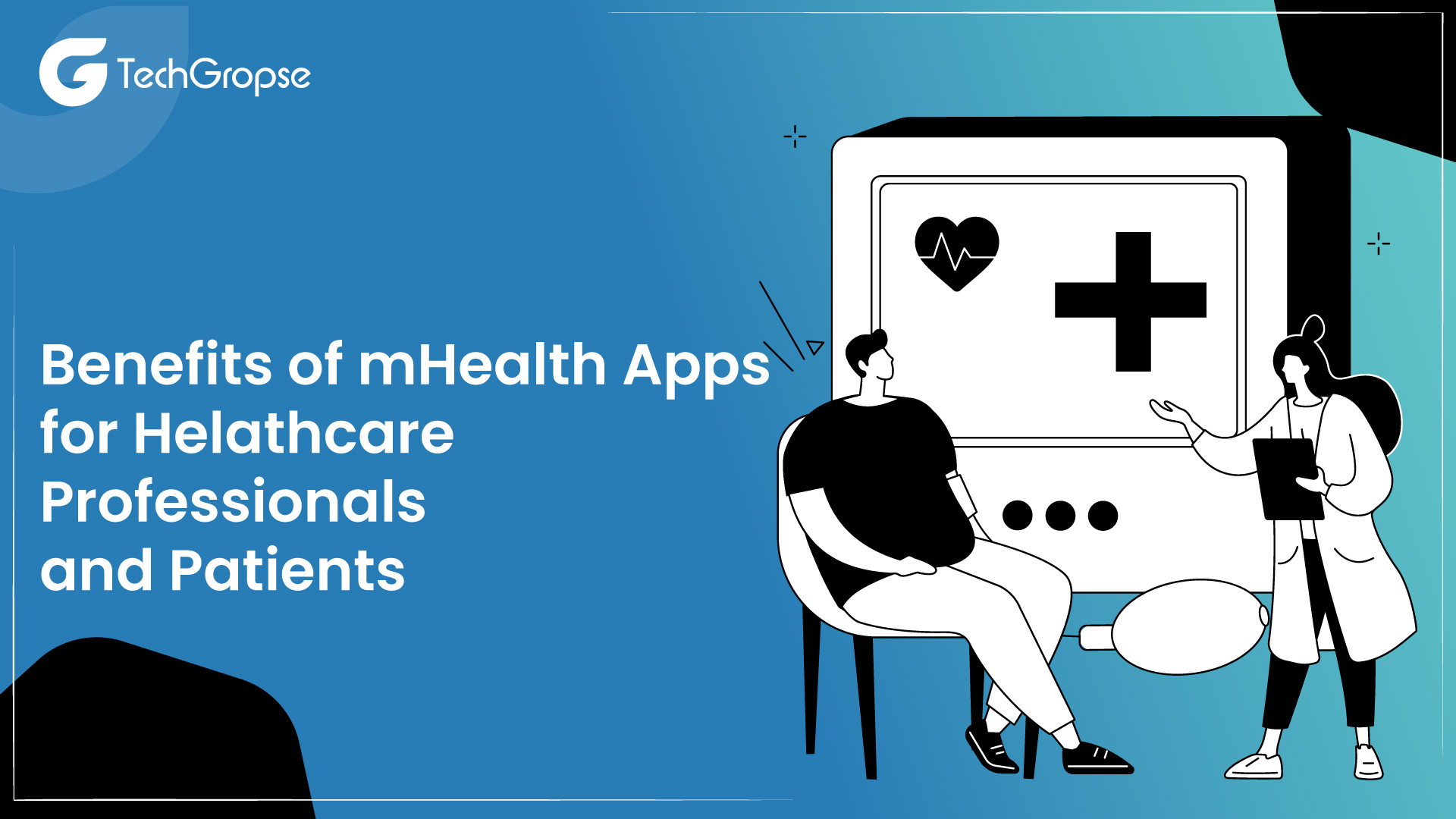
Undoubtedly, technology is getting advanced, so the demand for it is becoming high in every sector, including healthcare. And you believe that mHealth apps have few advantages for healthcare professionals and patients. Below are some obvious advantages of mHealth apps:
- Reduce Risk of Misdiagnosis
When doctors handle patients’ records manually, there are high chances of diagnostic issues. A report shows that diagnostic errors affect millions of people annually. And lots of people die annually from complications from these misdiagnoses. Since mHealth apps work as a boon for patients to keep track of all prescriptions, communications, and treatment options, the risk of diagnostic mistakes is always reduced. The physicians can both offer data-driven treatment to their patients and secure themselves from malpractice lawsuits.
It’s a great advantage of mHealth apps. However, you have to know healthcare app development cost that may be different based on features and other aspects. It will assist you in defining whether the selected company works under your budget or not.
- Easier Access to Medical Reports
Through the help of mHealth mobile application, patients do not need to rush to the hospital to get their medical reports. They are able to get the report online, which can be associated at any time. Users can then consult the doctor accordingly without going through the trouble of forgetting the reports at home and misplacing them.
As a result, it is good to invest in mHealth apps. However, building such an application required planning and many other aspects. In such a case, you have to search for a mobile app development company that will assist you in every possible way to succeed.
- Optimized Person-Hours
It is obvious that physicians are unable to work round the clock, but they do. This is a worldwide issue in the healthcare arena. This causes excessive stress, negatively impacts the quality of care, and strains the resources of the healthcare industry. However, mHealth apps allow healthcare service providers to have all records in one place, monitor treatment procedures, and get in touch with patients without wasting their time.
It’s a great advantage of mHealth apps. However, it isn’t easy to do this job without any knowledge and information when it comes to building healthcare applications. In such a scenario, it is suggested to seek the help of a mobile app development company that will assist in making this procedure more efficient.
- Timely Care at Remote Locations
This is another advantage of building mHealth apps. The majority of people in faraway locations can now get timely care by scheduling video calls with healthcare professionals. Patients can avoid regular clinic visits as physicians can monitor their patients through video or audio calls. Plus, the push-notification system in applications can send users essential health tips and precautions.
However, you have to hire dedicated developers to get this great advantage. With a skill set and knowledge, it is easier to start the development procedure. Therefore, you have to contact the professionals.
- Real-Time Communication
mHealth apps for patients can be utilized for real-time collaboration, information sharing, and consultation with doctors worldwide. These mobile applications benefit patients as physicians from around the world can share knowledge in real-time. Moreover, real-time communication allows doctors to check patients’ health constantly.
It’s a great advantage of mHealth apps. Therefore, you have to invest in this kind of application. In order to make the app development procedure more efficient and convenient, it is good to seek the help of a trusted and well-known company that has a proven track record of past work.
Current Trends in Mobile Health Solutions
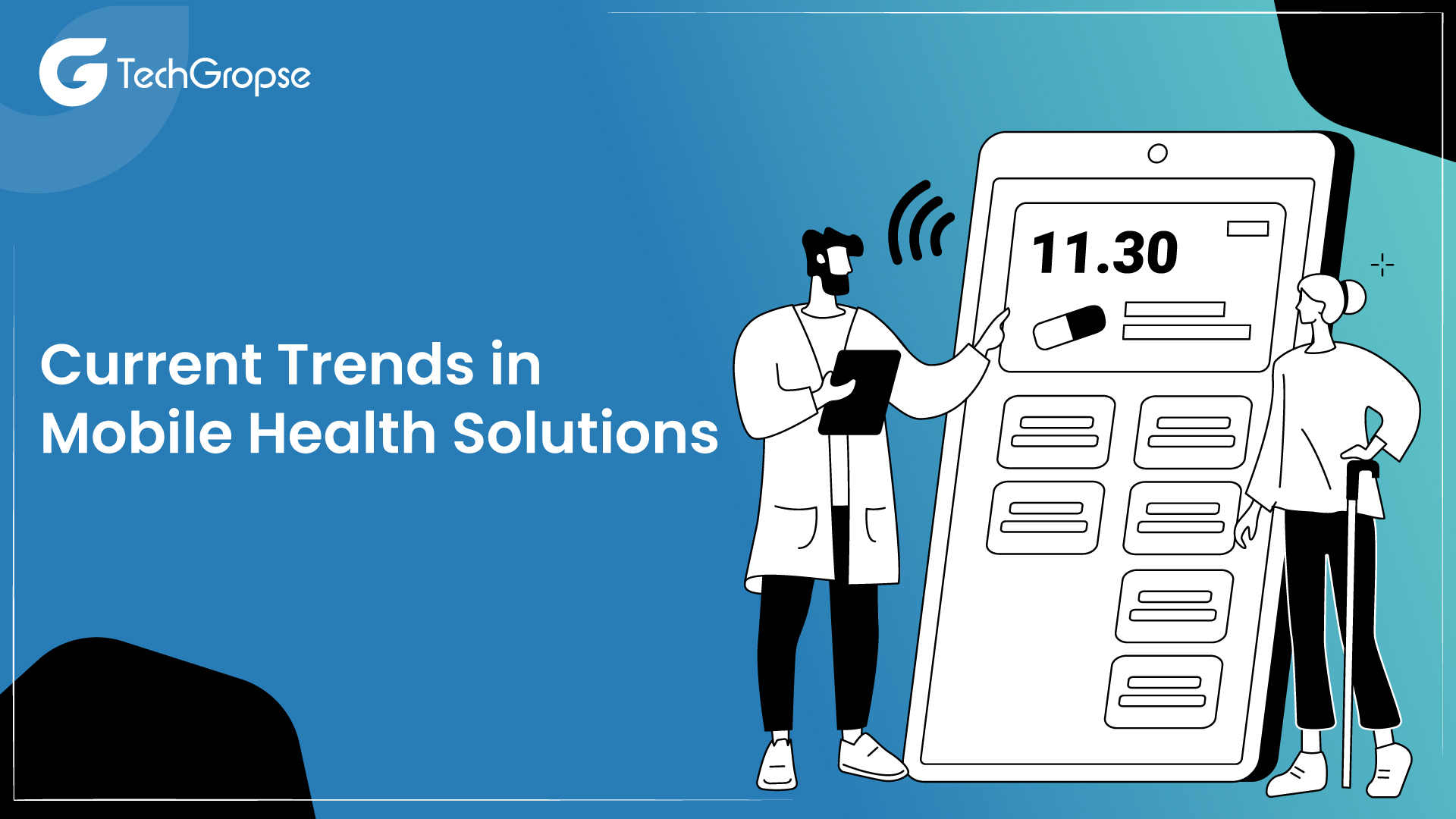
In recent years, the intersection of technology and healthcare has revolutionized the way we manage our health. Mobile health solutions (also known as mHealth) have become essential to the healthcare transformation, making it more accessible, personalized, and efficient. Here are the current trends shaping the mobile health solutions landscape.
- Telemedicine and Virtual Consultations
Things have changed with the advent of telemedicine, especially in the wake of global events highlighting telemedicine’s importance. Mobile healthcare solutions enable virtual consultations, allowing patients to connect with medical professionals from their homes. This trend has improved access to healthcare and reduced the burden on physical healthcare facilities.
- Wearable Health Monitoring Technology
Wearable devices such as smartwatches and fitness trackers have evolved from counting steps. It now offers advanced health monitoring features such as heart rate tracking, sleep analysis, and even ECG measurements.
These wearables seamlessly integrate with mobile apps to provide users and healthcare providers with real-time health data for proactive health management.
- Mobile App for Medication Adherence
Medication adherence has been a long-standing challenge in healthcare. Mobile apps now play an important role in reminding users to take their medications on time, tracking dosing schedules, and providing educational resources about prescription drugs. These apps help increase patient compliance and improve health outcomes.
- Gamification for Health and Wellness
Gamification technologies are increasingly being integrated into mobile health apps to make health activities more appealing. From step challenges to personalized fitness games, these apps use gamification principles to encourage users to adopt and maintain healthy habits.
- AI-powered personalized health recommendations
Artificial intelligence is revolutionizing how health information is processed and used. AI-based mobile health solutions analyze large amounts of data and provide personalized health recommendations based on an individual’s profile. From nutritional advice to exercise plans, these AI-powered apps tailor their recommendations to each user’s unique needs.
- Remote Patient Monitoring
Beyond virtual consultations, mobile medical solutions enable continuous remote monitoring of chronically ill patients. Connected devices transmit medical data to healthcare providers in real-time, allowing for timely intervention and reducing the need for frequent hospital visits.
- Blockchain for Health Data Security
With the increasing importance of data security and privacy, blockchain technology is being used to protect health information. Mobile healthcare solutions using blockchain ensure that sensitive patient data is encrypted, transparent, and tamper-proof, promoting reliability and compliance with strict data protection regulations.
- Chatbots for Health Information and Support
Chatbots are becoming an essential part of providing instant health information and support. These AI-driven conversational agents can also answer questions, provide medication reminders, and provide emotional support. Mobile health apps with chatbots improve user engagement and access to medical resources.
- Genomics Mobile Health Applications
Advances in genomics have paved the way to personalized medicine. Mobile health solutions now allow users to explore their genetic makeup, understand potential health risks, and receive personalized preventive care recommendations. This will enable individuals to approach their health based on their unique genetic profile proactively.
- Social Health Communities
Mobile Health Solutions facilitates the development of online health communities where users can share experiences, seek advice, and connect with others facing similar health issues. These communities provide a supportive environment and contribute to the mental and emotional well-being of people who strive for good health.
In the short term, current trends in mobile healthcare solutions demonstrate the transformative power of technology to shape the future of healthcare. As these trends continue to evolve, the synergy between mobile technology and healthcare is expected to usher in an era of more personalized, accessible, and efficient healthcare services for people around the world. By following these trends, you can easily build a mHealth app.
Step-By-Step Guide to Build mHealth App?
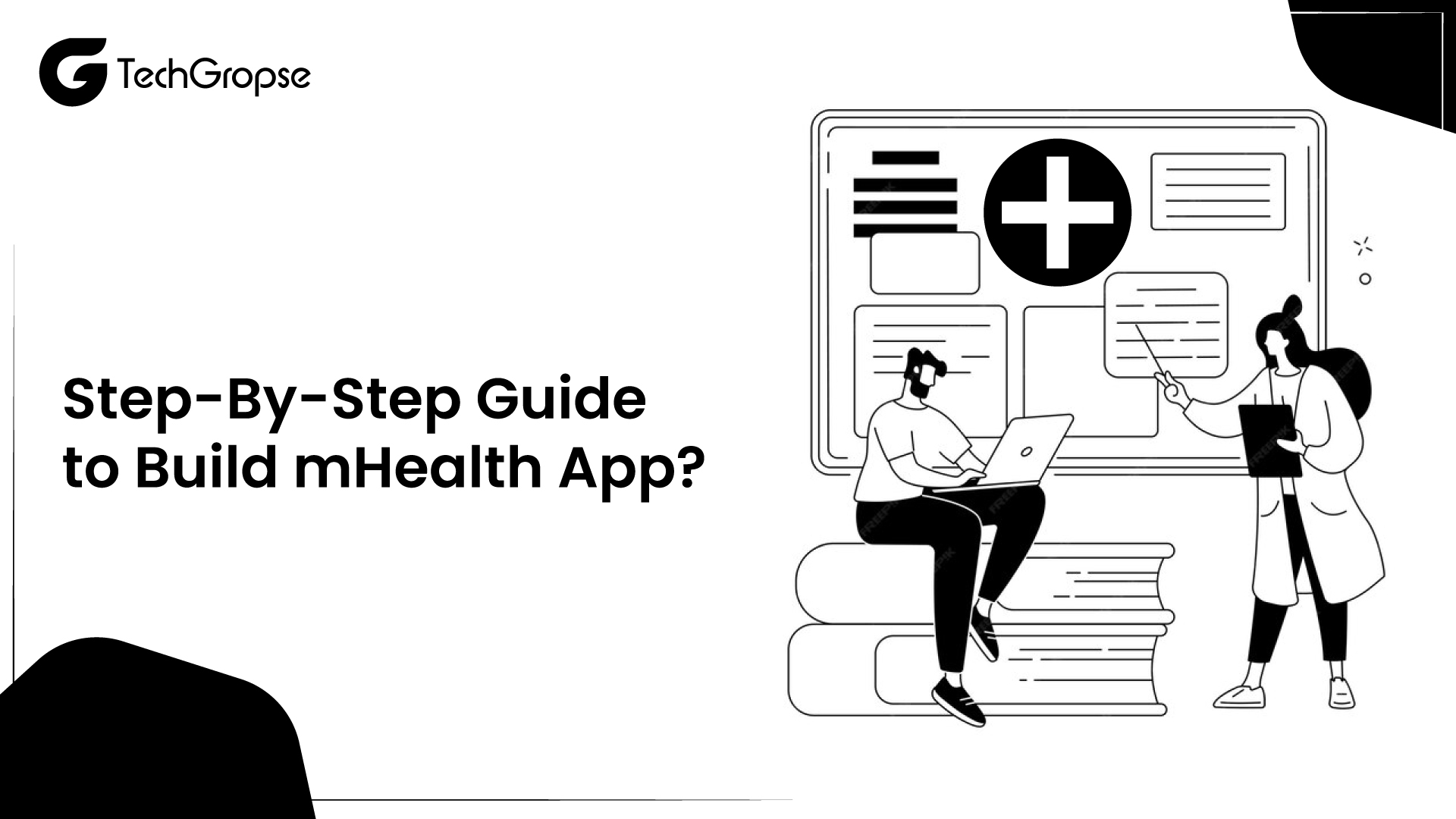
Above, we have discussed the key advantages of mHealth apps development and the latest trends. Now, we’ll discuss the steps to build a successful app.
1. Identify an Issue
When deciding to create mHealth apps, it’s essential to understand the end-user’s requirements. Identify the issues they are facing and how your app can make it better. In this stage, you must also dig deep and select a medical field to launch your application. If you need complete knowledge and understanding, hire mobile app developers to assist you in this task is good.
2. Choose Platforms
Another step is to select the platform to build your app. There are different platforms, such as iOS, Android or the web, so you can choose one per your need. The essential thing to note is that elderly patients generally tend to prefer visiting a website, while teenagers are more app-friendly. You know that market research will come in handy when deciding the platform for your app.
3. Hire an App Development Company
Now it is time to hire a reliable Android app development company that will make sure that your mHealth apps include all the latest features and functionalities. Moreover, when you search for a trusted company, you don’t have to worry about the quality of the project. Therefore, it is a great idea to hand over your project to an experienced and well-known healthcare app development company.
4. Choose a Monetization Model
The main intention is to build an app to earn money. Once we talk about how to make money from an app, the mHealth domain works around two types: subscription and freemium. Henceforth, you have to choose a monetization model to make money. You can also make it freemium but take some charges for advanced features and functionalities. Through the help of this, you can easily earn money and make profits.
5. Build an MVP
You have to create an MVP to ensure the solution is well-tested and validated before it enters the market. To create a successful MVP, you must consult a mHealth app development company to identify your solution’s key features and then build an app accordingly. It will assist users to share their experience with your app, telling what functionality they would like to include in your project.
6. Test Your App
Testing is always crucial when building mHealth apps. You have to test everything from user experience and interface to content. Deep analysis and proper testing will assist in identifying bugs, shorten the development time and cost, and greatly improve your reputation as a service provider.
7. Launch and Track Performance
Once your app has been tested, launch it to the Google Play Store and Apple Store. After launching the app, track its performance with the in-app analytics tools you implemented during development, address user concerns and requests as well as introduce updates to keep users engaged.
Summing Up
The reputation of the mHealth apps is high in today’s time. As a result, many enterprises are investing in such applications. But when it comes to investing money, it is necessary to know everything about mHealth apps, like mobile app development cost, benefits, trends and many more things.
This will assist you in taking your business to the next level with ease. Above, we list out the essential information you have to know before handing over your project to someone’s hand.
FAQs
1. What is the mHealth app?
The mHealth app is a mobile application designed to support and improve healthcare services. These cover a wide range of features, from fitness tracking to medication reminders to virtual doctor visits.
2. Why are mHealth apps so popular?
Accessibility and convenience are key factors. People can monitor their health, access medical information, and even consult medical professionals, all from the palm of their hand.
3. What features do mHealth apps typically have?
This includes fitness tracking, symptom logging, medication reminders, virtual visits, health education resources, and more. Some apps use AI to analyze user data and provide personalized insights.
4. Is the mHealth app safe?
Security is a top priority. Reputable mHealth apps use encryption and follow industry standards to protect user data. However, it’s crucial for users to choose apps from trusted sources and be mindful of permissions.





























































